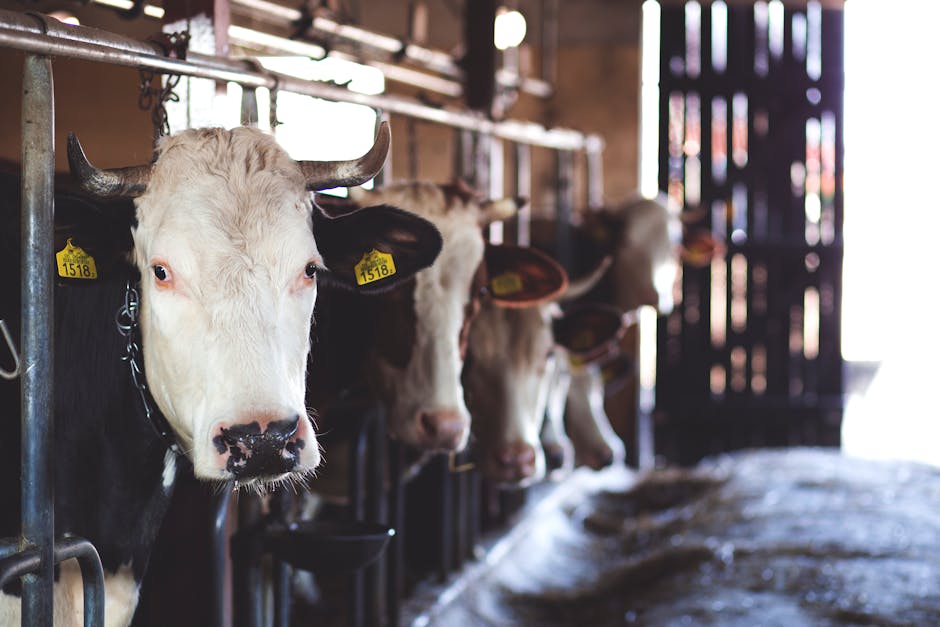Happy International Women’s Day!
My lovelies, perhaps you’ve noticed some faces missing at work today. Or, perhaps you’re seeing a lot more red outfits today than usual? Well, that’s because today is International Women’s Day and, for some who have the privilege to participate, it’s A Day Without Women.
I enjoy that privilege—to have been given permission to take the day off, and to have the Paid-Time-Off available to put toward luxury activities rather than to save for emergency uses. In addition to using my time away from the political/social/economic world as a demonstration on behalf of women, I’m also using this opportunity to help frame the feminist argument for veganism. I want to do this because today, more than most days, my heart weighs heavily as I think about my comrade lady animals—both human comrades and the non-human dairy cows and laying hens—who all suffer as a result of systems of oppression.
Can you be a non-vegan feminist?
Well, semantically, of course you can be a non-vegan feminist. But what about philosophically or morally? Could the consumption of animal products be compromising your feminist argument? And, if so, why would that be? Before I attempt to answer these questions, let’s delve into what the two beliefs—veganism and feminism—represent.
What is Veganism?
As we’ve discussed on the blog before, veganism is a lifestyle (not a diet) which removes all forms of animal abuse, cruelty, and exploitation—whether connected to food, clothing, entertainment, or any other purpose—as best as possible. Vegans share a general mindset that humans are not superior to non-human animals; in essence, we reject “speciesism.”
What is Feminism?
Similarly, feminism is the belief that no gender is superior to any other gender in any way—not men over women, nor cisgender over transgender.
Indeed, feminism has evolved from the originally limited, binary perspective which advocated for equality between the male/female sexes to the current, more inclusive approach which purports that no one should be discriminated against based on their gender, gender identity or expression, sex, or sexuality and further rejects “inequities along the intersectional lines of ability, class, gender, race, sex, and sexuality, and feminists seek to effect change in areas where these intersectionalities create power inequity” (EKU). But might that line of intersectionality be broken when it comes to extending beyond our species?
But Wait, What is Intersectionality?
First outlined by scholar Kimberlé Crenshaw in 1989, intersectionality aims to understand “the multiple forces shaping social inequalities. Intersectional analysis allows us to map the ways that race intersects with gender, ability, nationality, language, and other key categories of social existence and inequality.”[7] Intersectionality describes the experiences of the individual who fits into multiple categories (e.g., a black woman); and it is also helpful for understanding why fighting one form of oppression needs to also address other forms of oppression. Indeed, this idea resonated deeply with Martin Luther King, Jr., who once said:
Injustice anywhere is a threat to justice everywhere. We are caught in an inescapable network of mutuality, tied in a single garment of destiny. Whatever affects one directly, affects all indirectly.
Linked Oppressions
Before I move forward, let’s clarify the basis for the debate. Though I am still learning, I am becoming better skilled at identifying the inherent inequalities of arguments about inequality which suppress the experience of the oppressed or violated group. Phew, what a mouthful! By that I mean I understand that and why equating abused and exploited women to farmed animals is a form of abuse and exploitation of women in itself. And the same is so very obviously true for comparisons of the experiences of a people of color with the experiences of farmed animals. Therefore, I will try to explain how oppressions are linked without minimizing the very real experiences of each group.
To be clear, oppressions are not linked in that they are like the oppressions experienced by others; rather, they are linked by the systems that perpetuate that abuse and exploitation. For example, we would not say that impregnating a dairy cow is like raping a woman—in the United States, a person is raped every 98 seconds, and using that experience to prove a point is exploitative.[1] Instead, we might compare the patriarchal systems which contribute to these actions. We point out that female animals are being exploited for their biology, and the only “crime” for which they endure lifetimes of punishment is being born female.

Fighting for the Feminine
So today, our thoughts are on women, generally speaking. What do we say, then, when we seem to forget the millions of females we exploit daily?
From the definition above, we gather that veganism is essentially the belief that all animals are to be treated equally and live free from harm. Lest you need a refresher in biology, humans are animals, which is why so many vegans also actively fight human oppression in a number of ways, such as avoiding chocolate produced by child slave labor. To be sure, this isn’t to say that there aren’t sexist or racist vegans, because of course there are, as baffling as it is. However, this all brings me to the question: On the other side, to what degree does the standard feminist argument include defense for non-human animals? Can you ask for equality for one group (e.g., women) while ignoring the inequalities of another group (e.g., farmed animals)? And, can we expect to end gendered discrimination without ending animal exploitation?
For me, I absolutely cannot separate the two; and I wonder if, similarly to how there’s white feminism, there’s a limited human feminism.
*I intend to refine and expand this post in the coming weeks; however, for the timeliness that is International Women’s Day, I wanted to share my preliminary thoughts. I look forward to writing more on the subject!
Resources
- I would be remiss to ignore the fact, however that the restraint used to harness cows during this process is commonly referred to *by the industry* as a “rape rack.”
- Carol Adams and The Sexual Politics of Meat
- What is Feminism, EKU
- A Letter to the Non-Vegan Feminists, Women’s Center
- Scars of Suffering and Healing: Black Feminist Vegan Perspective on Race [Video], Dr. A Breeze Harper
- Demarginalizing the Intersection of Race and Sex: A Black Feminist Critique of Antidiscrimination Doctrine, Feminist THeory and Antiracist Politics.
- Kimberlé Crenshaw Instructors’ Guide: Free Resources on Intersectionality, Criticial Race Theory across Disciplines
- Black Feminism and Intersectionality, Sharon Smith





Very interesting and well thought out argument. I’ve been thinking about this a lot lately and it came as a shock to me to realise I had never noticed it before.
It is really a nice and useful piece of info. I’m glad that you shared this useful information with us. Please keep us informed like this. Thanks for sharing.